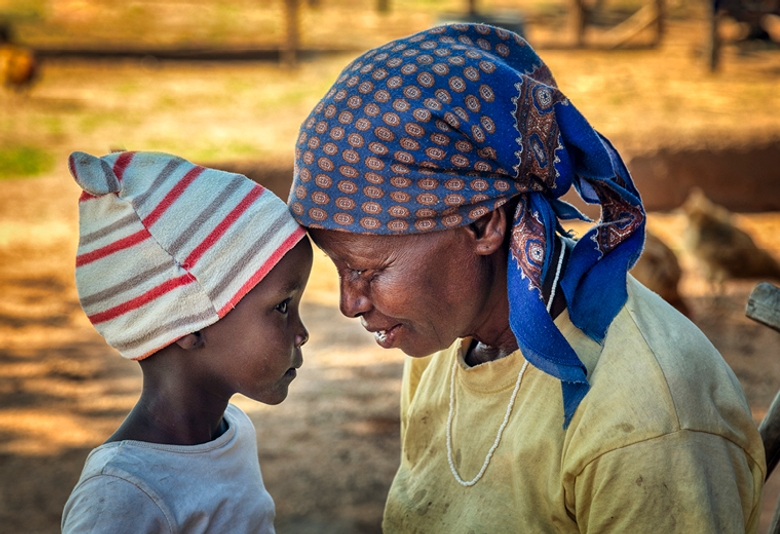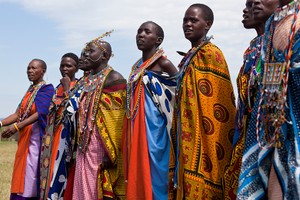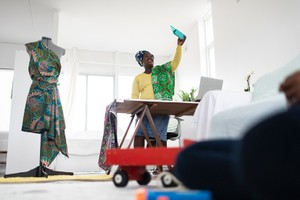My mother once told me that before colonialism and the introduction of the church in Lunda land, women had mastered the art of contraceptives, through waist beads. She explained how medicine women knew which thorny tree produced the right medicine to kill sperm. They would cut off a branch, pluck out a handful of thorns and then drill holes in them to add to the contraceptive waist beads.
Women would wear them for a few days right after having sex. The thorns would prick their skin and release this medicine. It worked for centuries until the church introduced the ban on contraceptives. She says there are very few women left today who recognize these trees and how to make the beads
Freedom and pain
When she first told me this story I thought it was cool but also a little barbaric; why would I let myself be pricked for days? When my contraceptive method increased my periods to 7 days and my pain from 30% to 100%, getting pricked didn’t seem so barbaric anymore.
I had thought to myself when my mother told me that story, “why would anyone want to go through that?” and the answer to that question came to me when I explained to a friend the side effects of the Copper IUD. The answer was to experience freedom.
The same freedom I felt when I had sex knowing that if the condom broke, I had extra protection, something that ensured I didn’t become a mother before I was ready. The freedom to experience sexual pleasure without having to pray and beg the gods to not make me pregnant. The joy of knowing that I was protecting my life and body from a life I may never want or ever be ready for. Those women were so willing to endure pain, the same way I was because that was the only option available that allowed them the chance to live life on their own terms.
Contraceptives and ownership
As women we get very few choices, our lives dictated by others and our bodies treated like the patriarchy’s playground. We are shamed when we don’t have children and punished when we do. Our value is often determined by what our uterus can and cannot produce. In our lifetime, we move from being daughters, wives, mothers and grandmothers. We belong to somebody even before we have had our first thought. We are never just people, with our own wants and needs. Womane are rarely ever given a chance and opportunity to be somebody. We belong to the world before we will ever belong to ourselves.
But somehow contraceptives help change that for us, they give us a chance to be masters of our own lives. To control when and if we will have children. They help us decide when we want to have our periods and how many children we will have. Contraceptives give us options, decision making power. They provide us a life of choice, something the world is so determined to deny us
Choice
When you see us enduring the pain, the hormones, the side effects, the pricking and hormonal surge it’s because to us, it’s the small price we pay for a life of choice. As painful and uncomfortable these decisions are, they are a drop in the ocean compared to having the world dictate how and when you should have children.. They give us a chance to breathe and belong fully to ourselves.
Do you have something to share? Leave your comments below, contact us on our social media platforms: Facebook, Instagram, Twitter, YouTube and TikTok, send us an email to info@findmymethod.org. For more information on contraception, visit findmymethod.org
About the author: Ann Kay Holland is a feminist, gender rights specialist, podcaster and the co-founder of Sistah Sistah Foundation. She enjoys making good feminist trouble and liberating minds. Her Twitter handle is @DonCorleAnn



